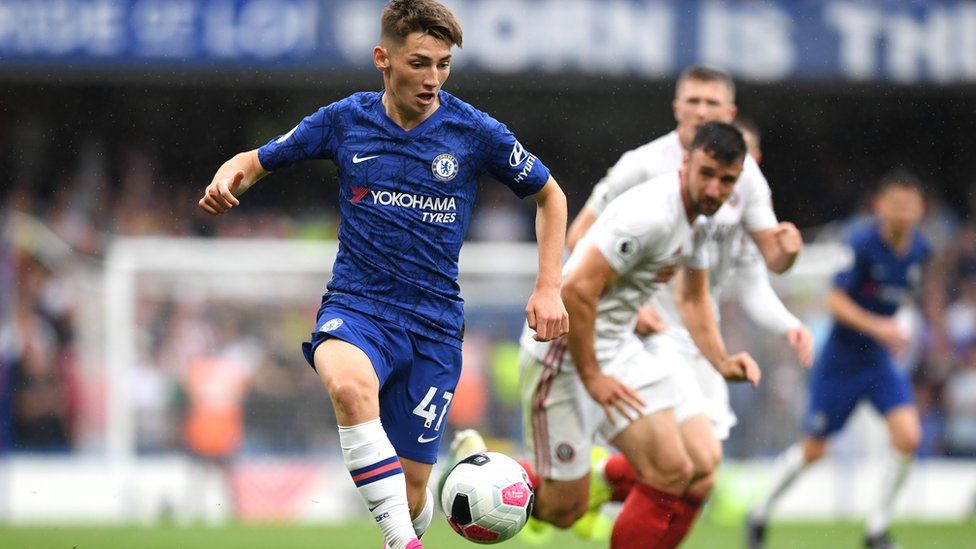SFA to 'review' young footballer rules
- Published

Registration rules that tie very young footballers to professional clubs are to be reviewed, the Scottish Football Association's chief executive has said.
Ian Maxwell told a Scottish Parliament committee there was a "willingness and openness" to see if the regulations were still fit for purpose.
Holyrood's petitions committee has been looking at the "appropriateness" of children under 16 signing agreements.
MSPs questioned whether clubs were treating children as commodities.
Young players can register for a professional club from the age of 10 and a system is in place to compensate clubs for the money they have invested in training and developing a young player who then moves to another team.
But such payments are rare in Scotland with just 10 cases of compensation sought in the past two years in the context of more than 2,000 players in the club academy system.
The SFA argues that registration is not a contract but it does bind the player to the club.
The registration applies to age groups 10 to 14 but can be extended into the 15 to 17 age groups.
Mr Maxwell, who has been SFA chief executive for 18 months, said a working party had been set up to review the registration process.
He was pressed by committee convener Jackie Baillie on whether three-year registration of young players would be abolished but said he could not "second guess" the outcome of the review.
Mr Maxwell, who was previously managing director of Partick Thistle, said: "If a player does not want to be at a club any more, the player can leave the club.
"There are mechanisms by which that can happen. There are guidelines laid down by which that can occur."
However, he said football clubs were willing to review whether the current system of registration was the correct one.
Mr Maxwell said the working party would look at registration rules, specifically issues with signing deals at 13 or 14 that extend into the 15 to 17 age group, often viewed by coaches as being the most crucial period in a young player's development.
Minimum wage
The Holyrood petition on youth football has been running for 10 years.
MSPs have previously said they had "serious concerns" over contracts and agents in Scotland's youth football system.
Among the concerns raised are the compensation payments creating a "transfer market" for child players and the ability for players to leave teams being curtailed.
The petitions committee previously heard from Jim Sinclair, former director of youth development at Rangers, that the compensation scheme for young players "can turn into a transfer market or end up in a bartering situation", adding that some parents "do not have full knowledge of the ramifications" of their children signing deals with clubs.
The committee has also previously questioned football chiefs over claims under-16 players had been paid £1 a week, and heard there were no background checks for player agents.
Mr Maxwell said clubs must be minimum wage compliant and paying £1 a week would be "absolutely breaking the law".
He urged anyone who was not paid minimum wage to come forward.
Last year the Scottish FA unveiled a five-year plan to ensure protection for children at all levels of the sport.
Earlier, Tam Baillie, who was Scotland's children's commissioner between 2009 and 2017, praised the SFA's inquiry into historic sexual abuse but warned the issue would not be properly tackled unless the "commercial exploitation of children" is ended.
He said: "If you think about it these clubs have the dreams of these young players in the palm of their hand. There is a power imbalance between the clubs and the young players."
Scott Robertson, a youth coach with more than 30 years' experience who submitted the petition with fellow coach Willie Smith, said "Why have we created a system where we have to transfer money for 13 or 14-year-old children and if the money's not paid they're stuck with the club whether they like it or not."
Mr Robertson said it was often difficult for players or parents to talk about the situation for fear of being "blacklisted" and effectively putting an end to their career.
What do the clubs say?
FIFA regulations allow football associations to adopt a system for the financial reward of clubs investing in the training and education of young players.
Neil Doncaster, chief executive of the Scottish Professional Football League, who represents the clubs, has previously said the current system of compensation payments "strikes the appropriate balance", as it needs to protect clubs as well as young people.
He said there had to be incentive for clubs to put time and money into developing young players, who could potentially be "hoovered up" by richer clubs.
Ross McArthur, chairman of Dunfermline Athletic, told BBC Scotland a fair and equitable system was needed for both players and the clubs.
He said: "I think sometimes in football that people are treated as though they are a commodity but they're not, they're a person and that's the culture that we try and push down all the age groups and look after people."
But Mr McArthur said the compensation scheme has to be protected in some form though as if it is not then it would be "not viable" for his club and many others to continue to develop players if they could move to bigger teams for free.
- Published22 December 2016
- Published15 August 2019
- Published27 January 2020
- Published6 October 2016
- Published20 May 2014